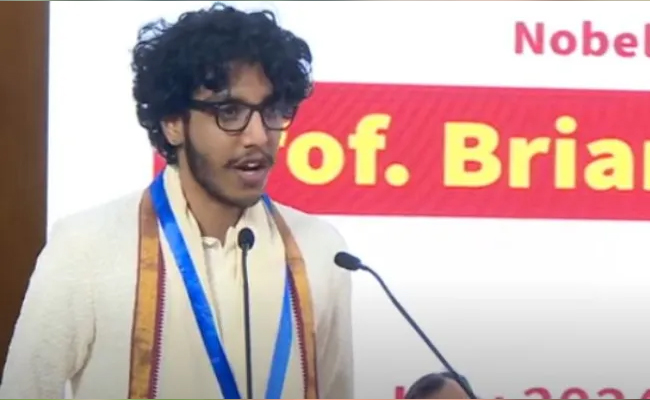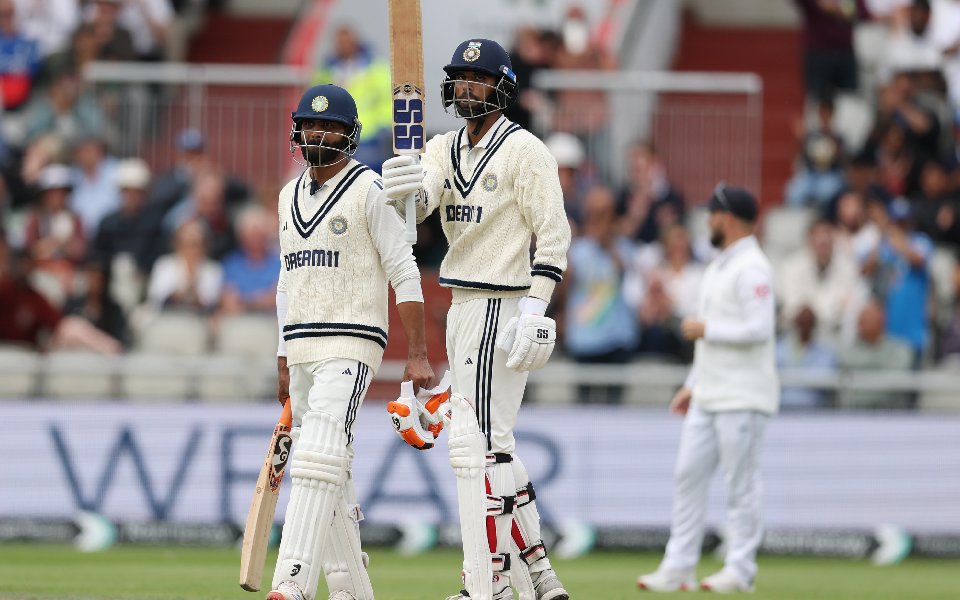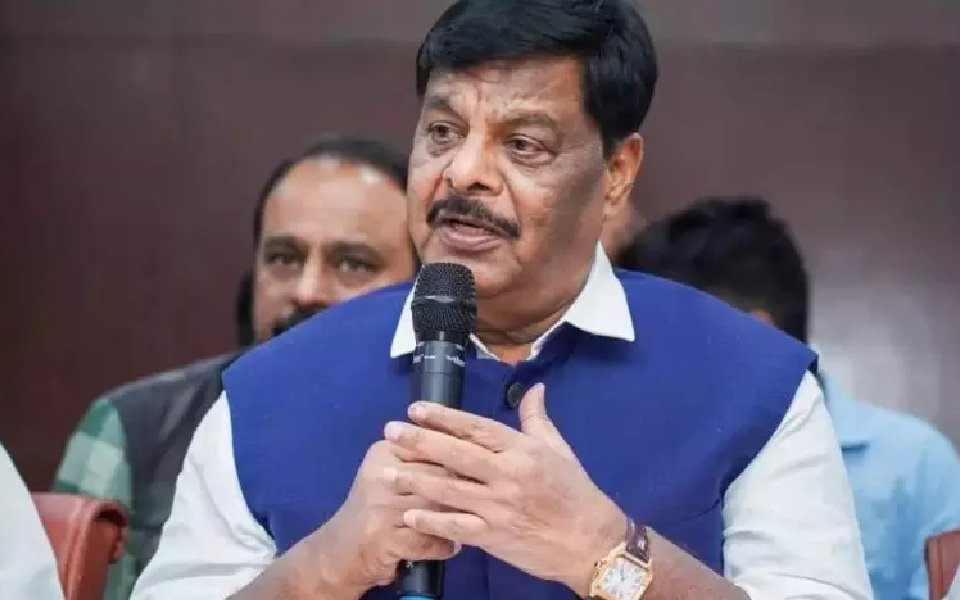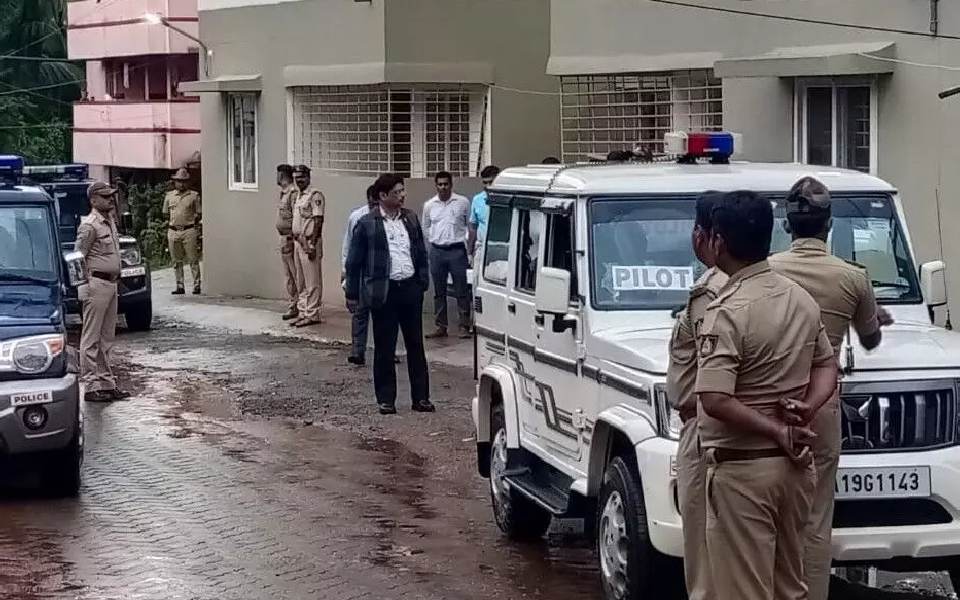Chennai: In a speech that has sparked discussion across India and beyond, Dhananjay Balakrishnan, a student from IIT Madras, used his convocation ceremony to speak about the ongoing crisis in Palestine. Balakrishnan, who won the prestigious Governor’s Prize for his exceptional performance in his dual degree program, spoke passionately about what he called a "mass genocide" happening in Palestine.
During the convocation at IIT Madras, Balakrishnan said he felt it was his duty to speak out for Palestine. He said, "This is a call for action against the mass genocide going on in Palestine. People are dying, and there is no end in sight." His speech has been widely shared on social media, drawing attention to the issue.
Balakrishnan pointed out that STEM fields—science, technology, engineering, and mathematics—have often been used to serve the interests of powerful countries like Israel. He said, "STEM as a field in itself has historically been used to advance the ulterior motives of imperial powers such as Israel."
His speech came at a time when global protests against Israel's actions in Palestine are on the rise. Recently, BJP leader Suvendu Adhikari shared a video on social media showing a Palestinian flag being waved in Murshidabad, calling for action against what he termed "anti-national elements."
Even Adhikari, known for labeling critics of the government as anti-national, might hesitate to use such a term for Balakrishnan, a top student at IIT Madras. Balakrishnan, who is from Kochi, Kerala, is completing his BTech in Mechanical Engineering and MTech in Data Science. He told the audience that "inaction is complicity," emphasizing the importance of taking action against injustice.
Balakrishnan received his award from Nobel laureate Brian K. Kobilka, recognizing his achievements in both academics and extracurricular activities. In his brief yet impactful speech, he challenged his peers to think about the ethical implications of their work. He said, "Many of these prestigious companies are directly or indirectly implicated in the war against Palestine by providing the state of Israel with technology. Technology that is used to kill."
Balakrishnan's words echo a growing trend of student activism worldwide. In countries like the United States and the United Kingdom, students have been protesting against Israel's military actions. More than 2,000 students in the U.S. have been arrested for taking part in pro-Palestine protests. Similar demonstrations have occurred in Canada, Australia, and European universities like Oxford and Cambridge.
South Africa became the first country to take Israel to the International Court of Justice, accusing it of committing genocide in Gaza. This global response has been supported by many Indian celebrities, including Priyanka Chopra and Alia Bhatt, who shared messages on social media showing solidarity with Palestinians after an Israeli airstrike in Rafah caused significant casualties.
Balakrishnan concluded his speech by calling for reflection and action. "As engineers graduating into the real world, it is our job to be aware of the consequences of the work we do and also to interrogate our own position in this complex system of power imbalances," he said. He urged his classmates to consider how they could help those who are oppressed by caste, class, and creed. "I believe this would be our first step to curb the never-ending cycle of suffering," he said. "…we owe it to them [the magnanimous people of India] to lift every single person out of their misery. Inaction is complicity. I hope you and I and all of us can take action to make the right decisions, however hard they might be."
Balakrishnan's speech has started a significant conversation, highlighting the role of young intellectuals in addressing global issues. According to Gaza’s Ministry of Health, more than 38,000 Palestinians have died since Israel began a military offensive last October in response to Hamas attacks. The IIT Madras convocation thus became a key moment for raising awareness about the humanitarian crisis in Palestine, with Balakrishnan's call for action and empathy resonating with many people around the world.
Let the Truth be known. If you read VB and like VB, please be a VB Supporter and Help us deliver the Truth to one and all.
Manchester, Jul 27 (PTI): Washington Sundar and Ravindra Jadeja extended India’s fight on day five of the fourth Test with determined half-centuries, giving the visitors a slender 11-run lead at tea time but more importantly raising visions of a morale boosting draw.
Both Jadeja (53 batting off 102) and Washington (58 batting off 139) batted with a strong purpose to save the game, frustrating a worn out England attack.
At tea, India were 322 for four after collecting 99 runs from a wicketless afternoon session.
Ben Stokes, who looked lethal in his eight over spell in the morning, could not keep up the intensity in the three overs he bowled in the second session.
In a 15-run over from Stokes, Washington pulled the England captain for a six and four to bring up his fifty before Jadeja employed the cut to complete his fifth half-century in six innings.
With not much batting to come and Rishabh Pant injured, it remains to be seen if India can pull off a draw from here.
What made England’s life difficult is that left-arm spinner Liam Dawson (0/70 in 39 overs) was not able to challenge the Indian left-handers enough while Jofra Archer too get could not get a breakthrough post lunch.
The second new ball is now 38 overs old, making batting easier.
In the morning session, Shubman Gill completed a gutsy hundred after Stokes battled through pain to dismiss a well set K L Rahul, leaving India at 223 for four at lunch.
Resuming the day at 174 for two with a deficit of 137, India remained on course to draw the game courtesy a fighting effort from Gill, who brought up his fourth century of the series. The Indian captain fell at the stroke of lunch with the visitors still trailing England by 88 runs.
Considering India’s backs against the walls and series on the line, this could be Gill’s most defining century if India managed to save the match and keep the series alive.
Expecting the ball to come back in, Gill felt for the one from Jofra Archer that shaped away, getting a faint outside edge.
The 188-run marathon stand between Gill and Rahul (90 off 230) was finally broken when the latter was trapped in front by Stokes with a ball that kept a tad low from length.
Soon after, Stokes got one jump to sharply from a similar length that foxed Rahul, leaving the Indian skipper in a lot of pain.
The rising ball first crashed into Gill’s right thumb before taking a piece of his
helmet.
It was remarkable that Stokes, who was not fit enough to bowl on day four, managed an eight-over spell on day five despite discomfort in his right shoulder and hamstring. Like at Lord’s, he did not care much about his injury prone body to help the team’s cause.
The new ball was taken after the 80th over and resulted in the wicket of Gill. Jadeja too would have be gone first ball but Joe Root could not hold on to a tough chance at first slip off Archer.
Brief scores:
India: 358 and 322/4 in 118 overs (KL Rahul 90, Shubman Gill 103, Ravindra Jadeja 53 batting, Washington Sundar 57 batting; Chris Woakes 2/57)
England 1st innings: 669 all out in 157.1 overs (Joe Root 150, Ben Stokes 141, Ben Duckett 94, Zak Crawley 84; Ravindra Jadeja 4/143).





